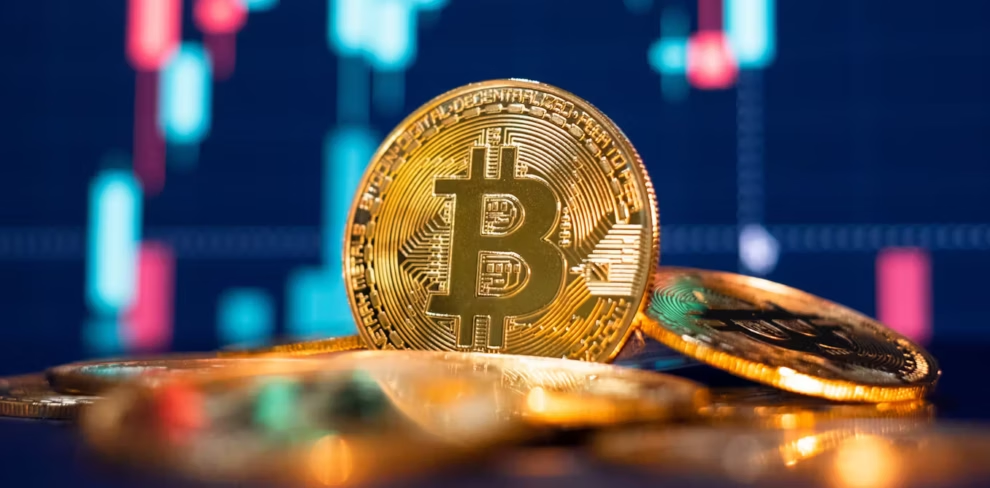The world economy feels increasingly like a rollercoaster. One day, markets are soaring, fueled by positive economic data; the next, they’re plummeting as nations slap tariffs on each other’s goods. This ongoing trade friction has left many investors feeling anxious, searching for assets that can weather the storm. And now, a prominent Wall Street firm suggests an unlikely candidate: Bitcoin.
Bernstein, a well-respected investment research and management company, has released a report highlighting Bitcoin’s surprising resilience during periods of heightened tariff chaos. While traditional assets like stocks and bonds often react sharply to trade policy announcements, Bitcoin has, on several occasions, demonstrated an ability to hold its value or even appreciate. This has left analysts at Bernstein and across Wall Street scratching their heads and re-evaluating the digital asset’s role in a diversified investment portfolio.
“We’ve been watching Bitcoin’s behavior closely during these periods of tariff-induced market volatility,” says Sarah Miller, a senior analyst at Bernstein who co-authored the report. “What we’ve seen is quite interesting. While there’s no direct correlation, Bitcoin appears to be exhibiting characteristics of a safe-haven asset, at least in certain contexts.”
But how can a digital currency, known for its wild price swings, act as a safe haven during global economic uncertainty? Several factors might be at play.
Firstly, Bitcoin operates outside the traditional financial system. It’s not tied to any specific government’s monetary policy or economic performance. This inherent decentralization could make it less susceptible to the direct impact of tariffs imposed by one nation on another. When trade tensions escalate, the value of a country’s currency or the performance of its stock market can be significantly affected. Bitcoin, existing on a global, decentralized network, might be perceived as insulated from these direct repercussions.
Consider the recent trade disputes between the United States and China. When tariffs were hiked on billions of dollars worth of goods, traditional markets experienced significant dips. Yet, during some of these periods, Bitcoin showed surprising stability. This wasn’t always the case, and Bitcoin remains a volatile asset, but the instances of resilience are becoming increasingly noticeable.
Secondly, Bitcoin’s limited supply could contribute to its safe-haven appeal. Unlike traditional currencies, which central banks can print more of, the total number of Bitcoins that will ever exist is capped at 21 million. This scarcity could make it an attractive store of value, especially when investors fear inflation or currency devaluation due to economic instability caused by trade wars.
“Think of it like digital gold,” explains Mark Olsen, a cryptocurrency investor who has been following Bitcoin since its early days. “Gold has historically been seen as a safe haven because of its limited supply and its lack of correlation with traditional financial assets. Bitcoin shares some of these characteristics.”
Furthermore, the global nature of Bitcoin’s trading could play a role. Unlike stocks that primarily trade on national exchanges, Bitcoin trades 24/7 across numerous exchanges worldwide. This global accessibility might make it a more liquid and potentially stable asset during times when specific national markets are experiencing turmoil due to trade disputes.
The Bernstein report acknowledges that Bitcoin is still a relatively young asset and its behavior can be unpredictable. However, the firm suggests that its observed resilience during tariff chaos warrants further investigation and consideration by investors. They emphasize that Bitcoin should not be viewed as a direct replacement for traditional safe-haven assets like gold or government bonds but rather as a potential diversifier in a well-balanced portfolio.
This observation from a major Wall Street firm like Bernstein carries significant weight. It suggests that the perception of Bitcoin is slowly evolving, moving beyond just a speculative asset to potentially a more mature financial instrument with unique characteristics.
Of course, the cryptocurrency market is not without its risks. Bitcoin’s price can still be highly volatile, and regulatory uncertainties persist in many parts of the world. Investors considering Bitcoin should be aware of these risks and conduct thorough research before investing.
However, the fact that a firm like Bernstein is highlighting Bitcoin’s resilience during tariff chaos is a notable development. It raises the question: could Bitcoin be providing a glimpse into the future of finance, where decentralized digital assets play a more significant role in navigating global economic uncertainties?
For everyday individuals worried about the impact of trade wars on their savings and investments, this news might offer a glimmer of hope. While Bitcoin might not be the answer for everyone, its surprising strength in the face of tariff chaos suggests that it could be an asset worth watching. As global trade tensions continue to simmer, Bitcoin’s performance could provide valuable insights into its potential role as a modern-day safe haven.








